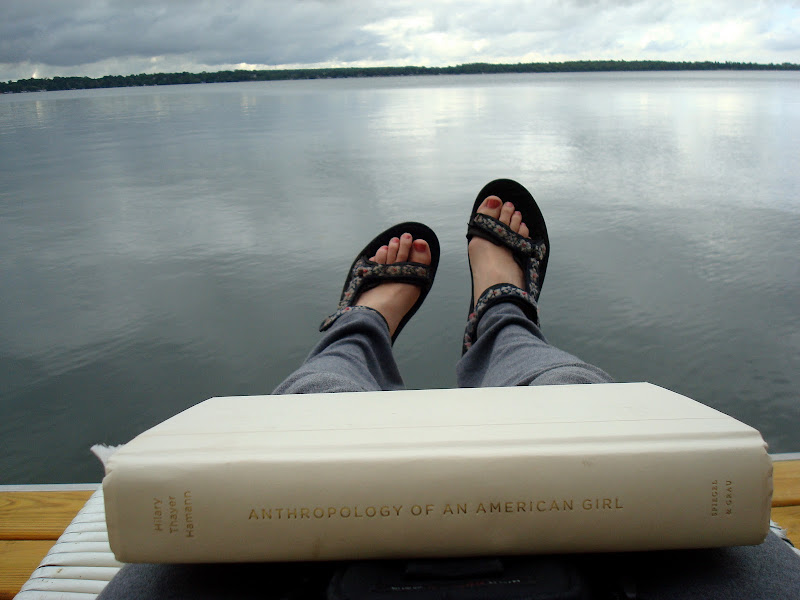All--
Below are summaries for the three potential January Books. The poll therefore is to the right. Look forward to seeing everyone this weekend.
The Good Soldier
First published in 1915, Ford Madox Ford's The Good Soldier begins, famously and ominously, "This is the saddest story I have ever heard." The book then proceeds to confute this pronouncement at every turn, exposing a world less sad than pathetic, and more shot through with hypocrisy and deceit than its incredulous narrator, John Dowell, cares to imagine. Somewhat forgotten as a classic, The Good Soldier has been called everything from the consummate novelist's novel to one of the greatest English works of the century. And although its narrative hook--the philandering of an otherwise noble man--no longer shocks, its unerring cadences and doleful inevitabilities proclaim an enduring appeal.
Ford's novel revolves around two couples: Edward Ashburnham--the title's soldier--and his capable if off-putting wife, Leonora; and long-transplanted Americans John and Florence Dowell. The foursome's ostensible amiability, on display as they pass parts of a dozen pre-World War I summers together in Germany, conceals the fissures in each marriage. John is miserably mismatched with the garrulous, cuckolding Florence; and Edward, dashing and sentimental, can't refrain from falling in love with women whose charms exceed Leonora's. Predictably, Edward and Florence conduct their affair, an indiscretion only John seems not to notice. After the deaths of the two lovers, and after Leonora explains much of the truth to John, he recounts the events of their four lives with an extended inflection of outrage. From his retrospective perch, his recollections simmer with a bitter skepticism even as he expresses amazement at how much he overlooked.
Dowell's resigned narration is flawlessly conversational--haphazard, sprawling, lusting for sympathy. He exudes self-preservation even as he alternately condemns and lionizes Edward: "If I had had the courage and the virility and possibly also the physique of Edward Ashburnham I should, I fancy, have done much what he did." Stunningly, Edward's adultery comes to seem not merely excusable, but almost sublime. "Perhaps he could not bear to see a woman and not give her the comfort of his physical attractions," John surmises. Ford's novel deserves its reputation if for no other reason than the elegance with which it divulges hidden lives.
Paperback: 352 pages
All the Pretty Horses
This is a novel so exuberant in its prose, so offbeat in its setting and so mordant and profound in its deliberations that one searches in vain for comparisons in American literature. None of McCarthy's previous works, not even the award-winning The Orchard Keeper (1965) or the much-admired Blood Meridian (1985), quite prepares the reader for the singular achievement of this first installment in the projected Border Trilogy. John Grady Cole is a 16-year-old boy who leaves his Texas home when his grandfather dies. With his parents already split up and his mother working in theater out of town, there is no longer reason for him to stay. He and his friend Lacey Rawlins ride their horses south into Mexico; they are joined by another boy, the mysterious Jimmy Blevins, a 14-year-old sharpshooter. Although the year is 1948, the landscape--at some moments parched and unforgiving, at others verdant and gentled by rain--seems out of time, somewhere before history or after it. These likable boys affect the cowboy's taciturnity--they roll cigarettes and say what they mean--and yet amongst themselves are given to terse, comic exchanges about life and death. In McCarthy's unblinking imagination the boys suffer truly harrowing encounters with corrupt Mexican officials, enigmatic bandits and a desert weather that roils like an angry god. Though some readers may grow impatient with the wild prairie rhythms of McCarthy's language, others will find his voice completely transporting. In what is perhaps the book's most spectacular feat, horses and men are joined in a philosophical union made manifest in the muscular pulse of the prose and the brute dignity of the characters. "What he loved in horses was what he loved in men, the blood and the heat of the blood that ran them," the narrator says of John Grady. As a bonus, Grady endures a tragic love affair with the daughter of a rich Spanish Hacendado , a romance, one hopes, to be resumed later in the trilogy.
Paperback: 301 pages
The Time Traveler’s Wife
On the surface, Henry and Clare Detamble are a normal couple living in Chicago's Lincoln Park neighborhood. Henry works at the Newberry Library and Clare creates abstract paper art, but the cruel reality is that Henry is a prisoner of time. It sweeps him back and forth at its leisure, from the present to the past, with no regard for where he is or what he is doing. It drops him naked and vulnerable into another decade, wearing an age-appropriate face. In fact, it's not unusual for Henry to run into the other Henry and help him out of a jam. Sound unusual? Imagine Clare Detamble's astonishment at seeing Henry dropped stark naked into her parents' meadow when she was only six. Though, of course, until she came of age, Henry was always the perfect gentleman and gave young Clare nothing but his friendship as he dropped in and out of her life. It's no wonder that the film rights to this hip and urban love story have been acquired.
Paperback: 546 pages
Colleen















































